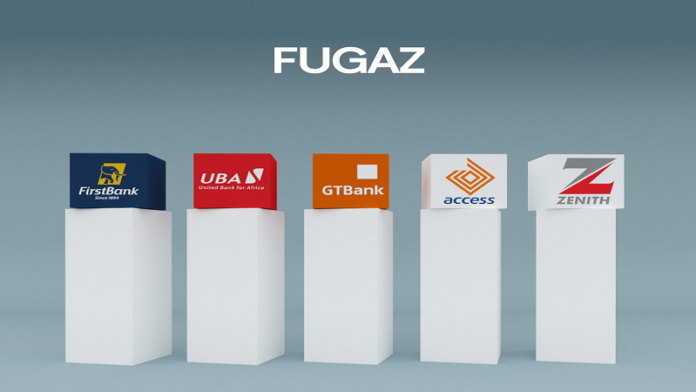Access Bank makes lion share of N200b generated by 12 listed banks
By Jeph Ajobaju, Chief Copy Editor
Access Bank, Nigeria’s largest by customer base and assets, generated N46.25 billion from e-business in the nine months to September (by Q3 2021), leading in the N200 billion shared by FUGAZ and other banks.
FUGAZ is the acronym for Tier-1 banks, the five biggest by market capitalisation – FirstBank, United Bank for Africa (UBA), Guaranty Trust Bank (GTCo), Access Bank, and Zenith Bank.
The N46.25 billion intake of Access Bank is 60.6 per cent higher than N28.8 billion by Q3 2020.
The 12 banks listed on the Nigerian Stock Exchange (NSE) made N200.45 billion from e-business between January and September.
Access Bank, First Bank, and UBA led with highest income, shown in their unaudited financials for Q3 2021 filed with the NSE.
Banks’ revenue from e-banking surged 41.1 per cent to N200.45 billion compared with N142.1 billion by Q3 2020, per reporting by Nairametrics.
Banks have had to ramp up efforts to boost revenue from other sources after the Central Bank of Nigeria (CBN) kept interest rates low to encourage borrowing and lift the economy from pandemic recession.
The significant growth in their e-business income has helped cushion the effect of dwindling interest income on their bottom line.
__________________________________________________________________
Related articles:
Access Bank makes nearly N30b in e-banking
Access Bank tops FUGAZ with N450.6b earnings in H1 2021
E-banking fetches N216b for Nigerian banks
__________________________________________________________________
Access Bank – N46.25 billion
Access Bank generated N46.25 billion from e-business by Q3 2021.
Profit after tax rose 19.1 per cent to N121.9 billion against N102.3 billion by Q3 2020.
It grew total assets 19.6 per cent to N10.37 trillion from N8.67 trillion in January.
FBN Holdings – N42.02 billion
FirstBank raised e-business income 21.5 per cent to N42.02 billion on N34.6 billion by Q3 2020.
FirstBank, the oldest bank in the country, is at the forefront of the mobile banking revolution.
It is one of the pioneers of USSD used to transfer money via text messaging application of a mobile phone.
Despite the growth in e-business income, FirstBank recorded a 24.8 per cent decline in profit after tax, largely affected by a 12.6 per cent decline in interest income compared with Q3 2020.
UBA – N41.9 billion
UBA came third with N41.91 billion e-business income, a 50.4 per cent increase on N27.87 billion by Q3 2020.
Profit after tax grew 35.6 per cent to N104.6 billion with interest income at N343.7 billion by Q3 2021, an increase of 8.4 per cent.
Zenith Bank – N23.99 billion
Zenith Bank lifted e-business income 29.9 per cent to N23.99 billion from N18.46 billion by Q3 2020.
Interest income dipped 3.1 per cent to N308.88 billion against N318.82 billion by Q3 2020.
GTCo – N16.67 billion
GTCo generated N16.67 e-business income by Q3 2021, a 91.1 per cent hike on N8.21 billion by Q3 2020.
It had the highest surge in e-business income, and filled some gaps as interest income declined 12.5 per cent to N195.04 billion compared with Q3 2020.
E-banking growth explained
Nigeria is experiencing a massive boost in electronic-driven banking as increasing mobile phone adoption and social media activities produce huge consumption of data and spending across several channels.
- Banks are benefitting from greater mobile phone adoption, providing easy to use banking apps that are secure and operate like social media apps.
- As the CBN has left monetary policy rate (MPR) at 11.5 per cent, which means potentially lower interest income for banks, they have to explore other revenue sources.
- Fintech continues to attract significant investment with a greater number of them and telcos offering more financial services. The CBN has granted MTN and Airtel “Approval in Principle” to operate as Payment Service Banks.
- E-banking revenues are generated through digital transactions of bank customers, made from fees and commissions on mobile apps, ATM, USSD, internet banking, Point of Sale (POS) payments, and agency banking.
This analysis excludes the cost of earning income. The ranking will be significantly different if expenses incurred in earning income is net off.











